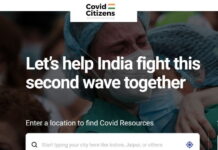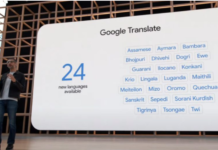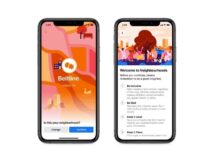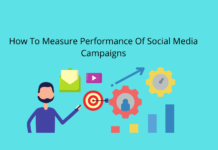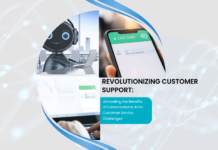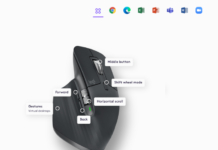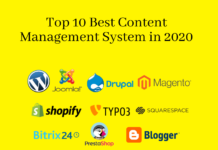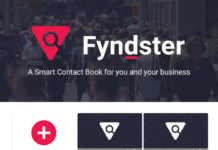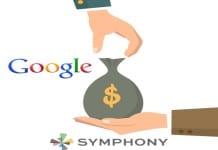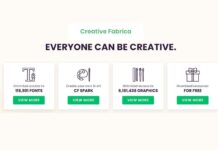In this day and age, the task of marketing your product comes after finding the right platform for it. It is crucial to do in-depth research and online market analysis to understand where your target audience goes to seek such products. In this article, explore strategizing for eCommerce channels in simple ways to drive better results.
Different channels come with different strategies. Finding what works for you and your audience can help you connect better with them. Remember, building a connection is more important than creating sales in your debut year.
To prove your authenticity to your customers, you have to choose a multi-channel strategy to show various facets of the eCommerce business. Let’s talk about what these channels do for you and how you can connect to your audience through smart work.
But first, what you need to keep in mind when working with multiple channels.
|
1. Choose wisely
Being present on online platforms does not mean being present everywhere. Choose which channel works for your business. For example, if you sell cosmetics and your audience is majorly present on social media except for platforms such as Twitter, then a strategy for Twitter will exhaust your efforts. In such a case, focus on making plans for Instagram, Facebook, etc.
Similarly, what marketplace does your audience inhabit? This is why an analysis of your industry and competitors is important before launching your channels. Having an understanding of your audience’s income group, preferences, and career can help you understand their behavior better.
2. Make a user journey chart
Where does the journey start? Where does it end? What are the stops in between? For example, a user came across an ad for headphones on Instagram which led him/her to the website of the brand, and the customer decided to compare prices on amazon or Facebook marketplace before returning to the website to look for more headphones from the same brand.
This is the customer journey before they decide on buying the product. It is also crucial to note the platform from where the customer makes the purchase.
3. Re-market to create retention
Multiple channels give you the liberty to re-market to the same customer to remind them of their initial interest. For example, many websites remind customers about the items in their cart or wishlist when they re-visit the website. Sometimes, customers receive emails about their wishlists that remind them to go back and make the purchase or delete the items if not needed.
Whatever the case, this is a great way of bringing the customers back to your channel.
4. Customize Ads
When you go to a restaurant as opposed to a café, even when you order the same item, the presentation and serving methods vary. This should be true for your online channels as well. Every platform has a different atmosphere and the customer visits with a set mindset for the particular platforms. This is why customizing ads as per the platform can help you keep your customer’s interest.
Moreover, the function of ads is to attract customers, and interesting ads can increase your channel visits.
5. Get real people to advertise for you
We all wait for the option to skip ads wherever one starts without our permission. However, when an influencer or an existing customer talks about the product, people tend to listen more carefully. Bringing real people to talk about your brand can help your ads serve their purpose. Moreover, reviews are sought-after by potential customers. Ask your existing clients to share videos, pictures, or written reviews about the product, service, or brand.
Strategies for your online platform
Website
People visit your website to get an overall view of the company and a wide knowledge of the product. The customized experience of going through a brand’s website can make or break a deal. For example, if your website does not give proper information on what kind of services you provide with your products (let’s say repair services for electronics), the customer is more likely to associate untrustworthiness with your brand.
Keeping a crystal clear website enhances your customer experience.
It is always advised to use multiple product pictures, from different angles or in different colors if applicable, to inform your customer.
A website that is easy to load, does not freeze and gives clear direction for customer journey (example: being clear as to which tab can be accessed for what information) keeps the customer happy.
Personalizing the website experience and keeping it mobile-friendly also works in your favor. Include call-to-action buttons wherever possible, and let the cart be easily accessible to your customer.
A complicated website with a language that cannot be easily understood also encourages your customer to click away, unless you are Apple and you have a loyal customer base.
Content
On average, about 463 minutes to 7.5 hours of data is consumed per day (source). People on the internet go through blogs, articles, videos, etc. a lot. For example, you are reading this article on an online platform. The most consumed form of content, as per a popular consensus on the internet, are music videos.
Leveraging content to reach your customers can be profitable for your business. Many websites, for example, have a blog section where they talk about trending topics in their industry or give detailed reviews of their products.
Today, 424 million people listen to podcasts, worldwide (source). You must have noticed how many YouTubers are leveraging podcasts as a content tool to create digestible content for their users that can be consumed on the go.
Using different forms of content to reach your customers is another way of connecting with them.
You can even provide guides and lookbooks to engage your customers and collect data about them. Websites often give a glimpse of an interesting ebook and ask for customer information to access the full version.
Emails
While writing this article only, I received 10 emails from different brands regarding their offers, their launches, and even my previous orders. Dominos’s email almost made me ask my mother if she would like to have pizza tonight. This is the power of email marketing.
People check their emails constantly, whether for work or personal use. Email marketing helps you personalize the communication with your customer and keep them hooked.
Your subject lines play a huge role here. A catchy subject gets more clicks than a dull one, so get a copywriter who knows the customer behavior.
You can use emails to talk about niche products, limited-time offers, or new launches. As discussed earlier in the article, you can even inform your customers of the products sitting in their carts.
Emails can also be used to create a feeling of missing out. “Our 50% off sale ended with a bang!” “60% off with no products left, this is what we call a good sale”.
Build your email list, and reach out to your customers to subscribe to your emails that will “inform them of the upcoming launches before the rest of the world”.
Social Media
The biggest player that is every eCommerce brand’s go-to is social media. And why not, the entire world is present there.
When we hear about a new brand, the first place we check is their Instagram handle to see what they are about. Pictures are easier to consume, therefore social media works like a charm.
Building a social presence and maintaining it as per your brand’s identity is necessary. If your target audience is the older generation, then it is best to sustain your presence on the Facebook marketplace. If you are targeting millennials, then TikTok, Instagram, and Pinterest are the best platforms for you.
While running your ads on these platforms, you also need to keep in mind what your purpose is. Either you can run ads per engagement or view. You can even invite people to visit your website through these ads. It is crucial to understand your purpose while planning a social media strategy for your brand.
SEO
Search Engine Optimization takes time to show results but is a great way of client conversion. When someone googles something, they do so to buy a particular product, at the moment or in the future. There are more chances of conversion through SEO.
You can create articles or blog pages to drive traffic toward your website. Use good keywords that are often used by your target audience. To do this, you need to, you guessed it right, understand your audience.
Let’s say your audience is the people from Tier 3 cities. Using fancy language for describing your products will not work. Take the example of Racold’s “how India types” campaign #ShowerDecision. This campaign proved that hefty but smart audience analysis went into creating the campaign. Since people from all walks of life require geysers as a necessity, the campaign focussed on reaching them. There are multiple ways that Indians write the spelling of ‘geyser’. The brand leveraged the information and created a mind-blowing idea.
These keywords were used in the product listing and thus helped the brand reach every corner.
Ultimately, you have to remember to be consistent and show up for your audience, whatever platform you are using. Whatever strategies we employ, we do so for the audience and if we can understand them, we can sell our products at a much faster rate.




